第31章 Part The First (31)
The three first articles are the base of Liberty, as well individual as national; nor can any country be called free whose government does not take its beginning from the principles they contain, and continue to preserve them pure; and the whole of the Declaration of Rights is of more value to the world, and will do more good, than all the laws and statutes that have yet been promulgated.
In the declaratory exordium which prefaces the Declaration of Rights we see the solemn and majestic spectacle of a nation opening its commission, under the auspices of its Creator, to establish a Government, a scene so new, and so transcendantly unequalled by anything in the European world, that the name of a Revolution is diminutive of its character, and it rises into a Regeneration of man.What are the present Governments of Europe but a scene of iniquity and oppression? What is that of England? Do not its own inhabitants say it is a market where every man has his price, and where corruption is common traffic at the expense of a deluded people?
No wonder, then, that the French Revolution is traduced.Had it confined itself merely to the destruction of flagrant despotism perhaps Mr.Burke and some others had been silent.Their cry now is, "It has gone too far"-that is, it has gone too far for them.It stares corruption in the face, and the venal tribe are all alarmed.Their fear discovers itself in their outrage, and they are but publishing the groans of a wounded vice.But from such opposition the French Revolution, instead of suffering, receives an homage.The more it is struck the more sparks it will emit; and the fear is it will not be struck enough.It has nothing to dread from attacks;truth has given it an establishment, and time will record it with a name as lasting as his own.
Having now traced the progress of the French Revolution through most of its principal stages, from its commencement to the taking of the Bastille, and its establishment by the Declaration of Rights, I will close the subject with the energetic apostrophe of M.de la Fayette-"May this great monument, raised to Liberty, serve as a lesson to the oppressor, and an example to the oppressed!"*[11] Miscellaneous Chapter To prevent interrupting the argument in the preceding part of this work, or the narrative that follows it, I reserved some observations to be thrown together in a Miscellaneous Chapter; by which variety might not be censured for confusion.Mr.Burke's book is all Miscellany.His intention was to make an attack on the French Revolution; but instead of proceeding with an orderly arrangement, he has stormed it with a mob of ideas tumbling over and destroying one another.
But this confusion and contradiction in Mr.Burke's Book is easily accounted for.- When a man in a wrong cause attempts to steer his course by anything else than some polar truth or principle, he is sure to be lost.It is beyond the compass of his capacity to keep all the parts of an argument together, and make them unite in one issue, by any other means than having this guide always in view.Neither memory nor invention will supply the want of it.
The former fails him, and the latter betrays him.
Notwithstanding the nonsense, for it deserves no better name, that Mr.
Burke has asserted about hereditary rights, and hereditary succession, and that a Nation has not a right to form a Government of itself; it happened to fall in his way to give some account of what Government is."Government,"says he, "is a contrivance of human wisdom.
Admitting that government is a contrivance of human wisdom, it must necessarily follow, that hereditary succession, and hereditary rights (as they are called), can make no part of it, because it is impossible to make wisdom hereditary; and on the other hand, that cannot be a wise contrivance, which in its operation may commit the government of a nation to the wisdom of an idiot.The ground which Mr.Burke now takes is fatal to every part of his cause.The argument changes from hereditary rights to hereditary wisdom; and the question is, Who is the wisest man? He must now show that every one in the line of hereditary succession was a Solomon, or his title is not good to be a king.What a stroke has Mr.Burke now made! To use a sailor's phrase, he has swabbed the deck, and scarcely left a name legible in the list of Kings; and he has mowed down and thinned the House of Peers, with a scythe as formidable as Death and Time.